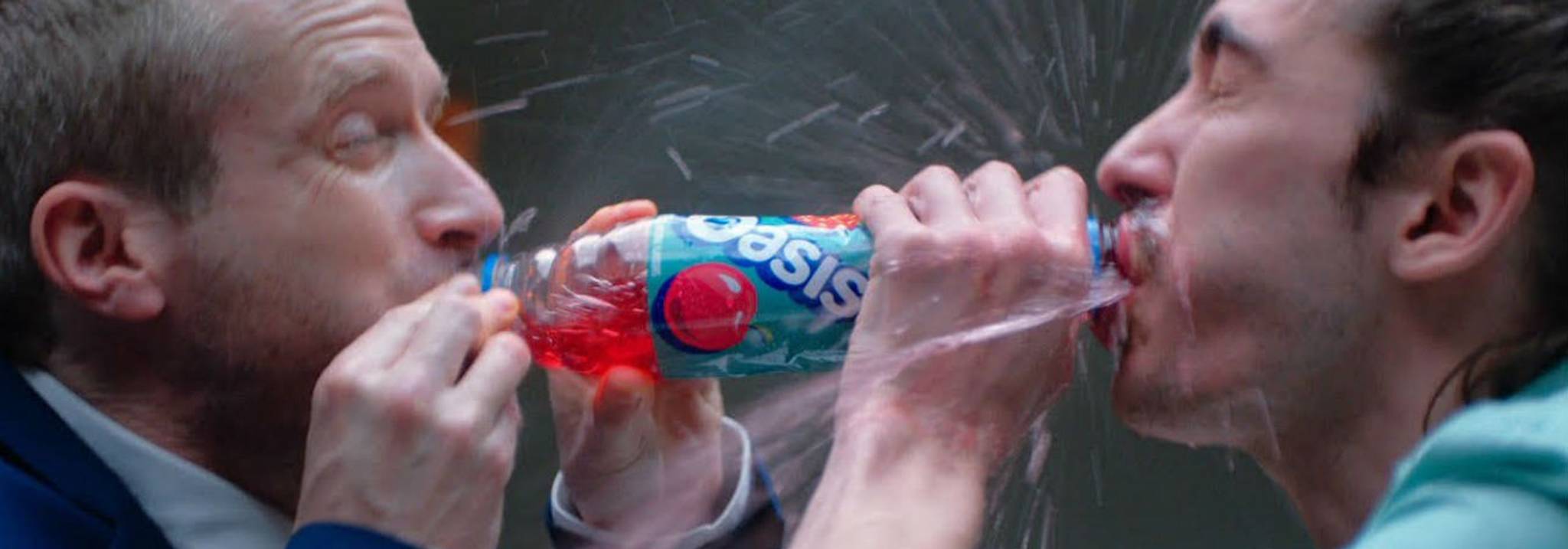
Soft drink brand Oasis makes fun of emotional social experiment ads widely used by brands to signal their values and purpose beyond profit by commenting on social issues. We discover the insights behind the campaign, and explain why its satirical tone may resonate with younger audiences.
In its new ad campaign, Oasis parodies purpose-driven commercials that use the social experiment tropes to convey a pro-social messages. As young people grow sceptical of trite or clichéd narratives, the campaign helps the brand stand out as a voice that gets them – albeit an irreverent one.
Created by London-based creative agency The Corner, Coca-Cola owned brand Oasis has launched the 'Togetherness' ad campaign. The spot pokes fun at commercials that aim at signaling a higher brand purpose – primarily those that show groups of strangers brought together in a social experiment by a beverage. In the video, couples of strangers are invited to share a drink through the 'Togetherness Bottle', which features a neck at both ends. After an initial moment of hesitation, participants try to drink from the bottle at the same time, yielding ridiculous results.
The commercial parodies a popular trope of purposeful advertising, which has seen brands call on the social experiment format, such as Heineken’s 'Worlds Apart' campaign. As research shows young people are becoming increasingly sceptical of advertising, so by adopting an absurd tone, Oasis position itself as a brand that shares the sentiment of its younger buyers. A self-aware, satirical take on commercial trends and marketing fads can help a brand get people’s attention in a fresh, lighthearted way, instead of trying to fit a social message into an advertising campaign like Pepsi's now-infamous Kendall Jenner protest campaign, which came across as insincere and shamelessly appropriating a serious issue for profit.
Edoardo Biscossi is a behavioral analyst at Canvas8, which specializes in behavioral insights and consumer research. He has a degree in Political Sciences and a Master’s degree in Consumer Behaviour. He’s interested in culture, people, art, the future, the niche, and the mass.



